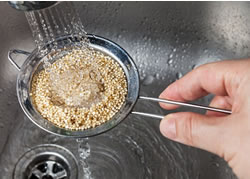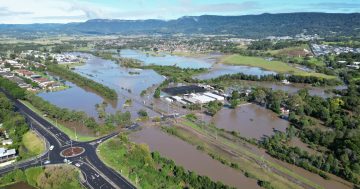 The Environment Protection Authority (EPA) has targeted restaurants and eateries across Canberra to educate them about their environmental and health responsibilities — in particular, washing food waste down the drain.
The Environment Protection Authority (EPA) has targeted restaurants and eateries across Canberra to educate them about their environmental and health responsibilities — in particular, washing food waste down the drain.
The facilities targeted were in Belconnen, Hawker, O’Connor, Manuka, Kingston, Civic, Braddon and Dickson, and the move was part of the Authority’s Operation Scrap.
Spokesperson for the EPA, Narelle Sargent said the program had resulted from troubling reports of eateries tipping liquids such as cooking oil, detergent, wastewater and chemicals and food waste down stormwater drains.
“What people, and businesses, need to remember is that stormwater feeds directly into our creeks, lakes and rivers without treatment — therefore what you put in it, ends up in our water systems,” Mrs Sargent said.
“Contaminants such as waste matter, detergents, and chemicals pollute our stormwater, which in turn pollutes our waterways, resulting in dying fish, algae overgrowth, unsafe swimming conditions, and unsightly (and smelly) creeks, lakes, and rivers.”
She said inspectors from the EPA and Health Protection Services (HPS) inspected 25 food businesses in the recent audit, which looked at cleaning practices, kitchen maintenance, cleaning facilities, and any pollution at the rear of restaurants, particularly around stormwater pumps.
“Unfortunately, officers found evidence of kitchen waste in the stormwater sumps at the rear of three businesses,” Mrs Sargent said.
“These businesses were provided with information about keeping the environment around their premises clean and were verbally warned to stop putting waste down the stormwater system; we expect to see improvements next time we visit or further regulatory activity will be taken.”
She said on-the-spot-fines of up to $200 for individuals or $1,000 for businesses can apply for acts of stormwater pollution.
Executive Director of HPS, Conrad Barr said that in addition to stormwater pollution, inspectors found minor maintenance issues at three businesses, including full cooking oil waste bins and an area of flooring that required resealing.
“The items identified in the inspection reports will be followed up with the businesses concerned as part of normal business,” Mr Barr said.



